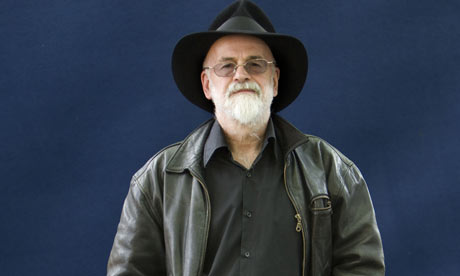
The author and euthanasia campaigner Sir Terry Pratchett has welcomed new guidelines on assisted suicide set out by the director of public prosecutions (DPP) today.
Pratchett used his Dimbleby lecture this month to call for euthanasia tribunals to give people with incurable diseases the right to medical help to end their lives. He said the new rules were the best possible outcome in the absence of a change in the law.
"I am really pleased, I think we're going as far as we can go without legislation," he said. "It's rather more looking into the mind of the person [who is] helping assist the person to commit suicide. I rather like that it's getting away from the 'tick-box' approach the preliminary guidelines seemed to be suggesting."
The DPP, Keir Starmer QC, said the final advice was not intended to be a tick-box exercise and the policy was now more focused on the motivation of the suspect.
Pratchett, who was diagnosed two years ago with a rare form of early onset Alzheimer's disease, said that while he welcomed the guidelines he would continue to campaign for a change in the law and for the introduction of euthanasia tribunals.
The author of the bestselling Discworld fantasy novels, and patron of Dignity in Dying, said what he had heard from the DPP strengthened the case for tribunals, which would provide a "safety net" for people who might be coerced into ending their own lives.
Sarah Wootton, Dignity in Dying's chief executive, called the guidelines a victory for common sense and compassion and a milestone on the way to legalising assisted deaths. But she said the situation remained flawed as assisted suicide was still illegal and, even with the help of the guidelines, people faced stressful investigations.
"The law still needs to change and we'll continue to campaign," she said.
Lord Carlile QC, chairman of Care Not Killing, said the guidelines greatly reduced the risk of undermining existing law.
"Our main concern was that the interim guidelines singled out as a group those who were disabled or ill, thereby affording them less protection than other people under the law," he said. "We are very glad this has been removed."

